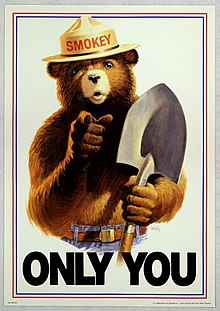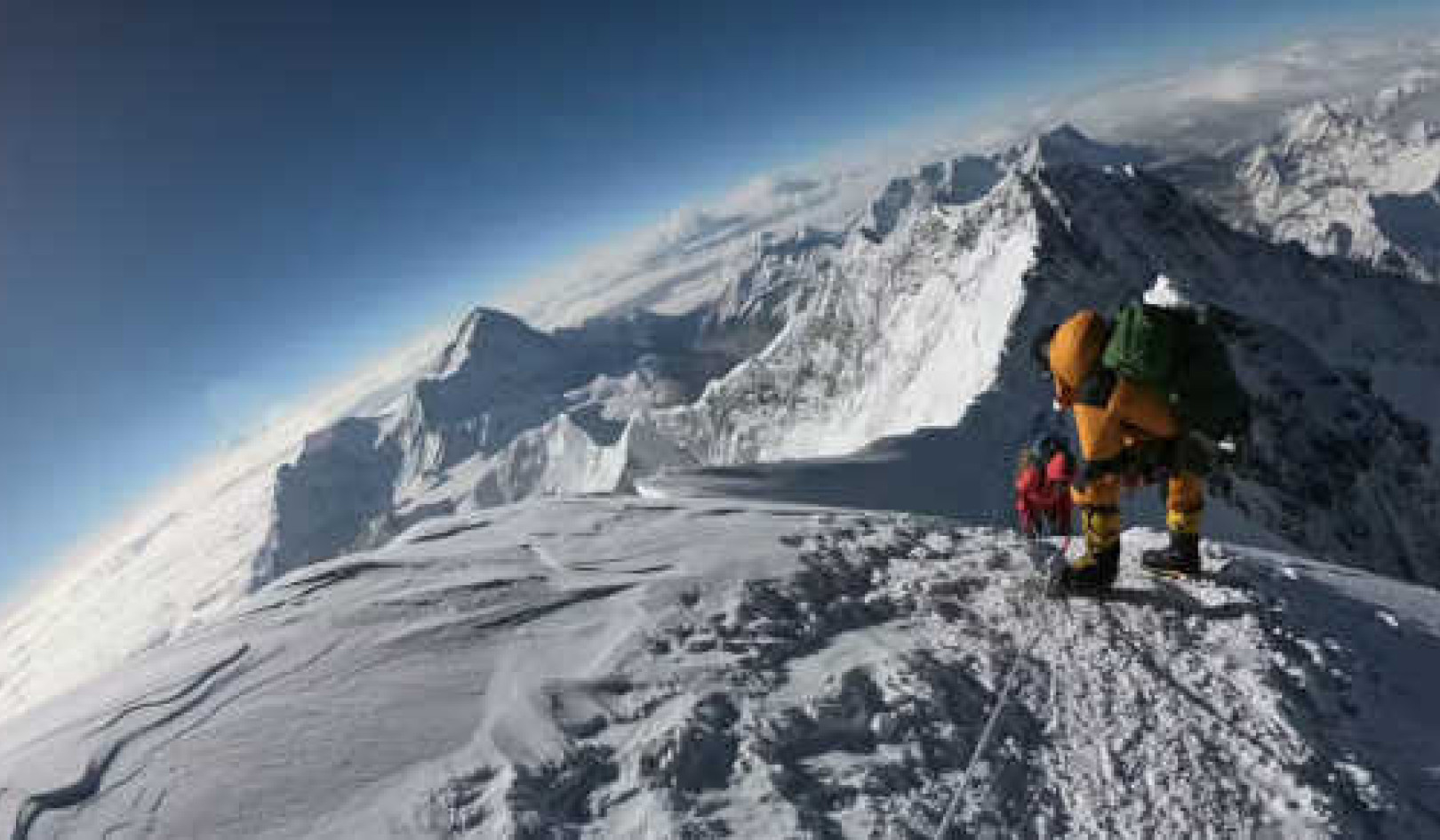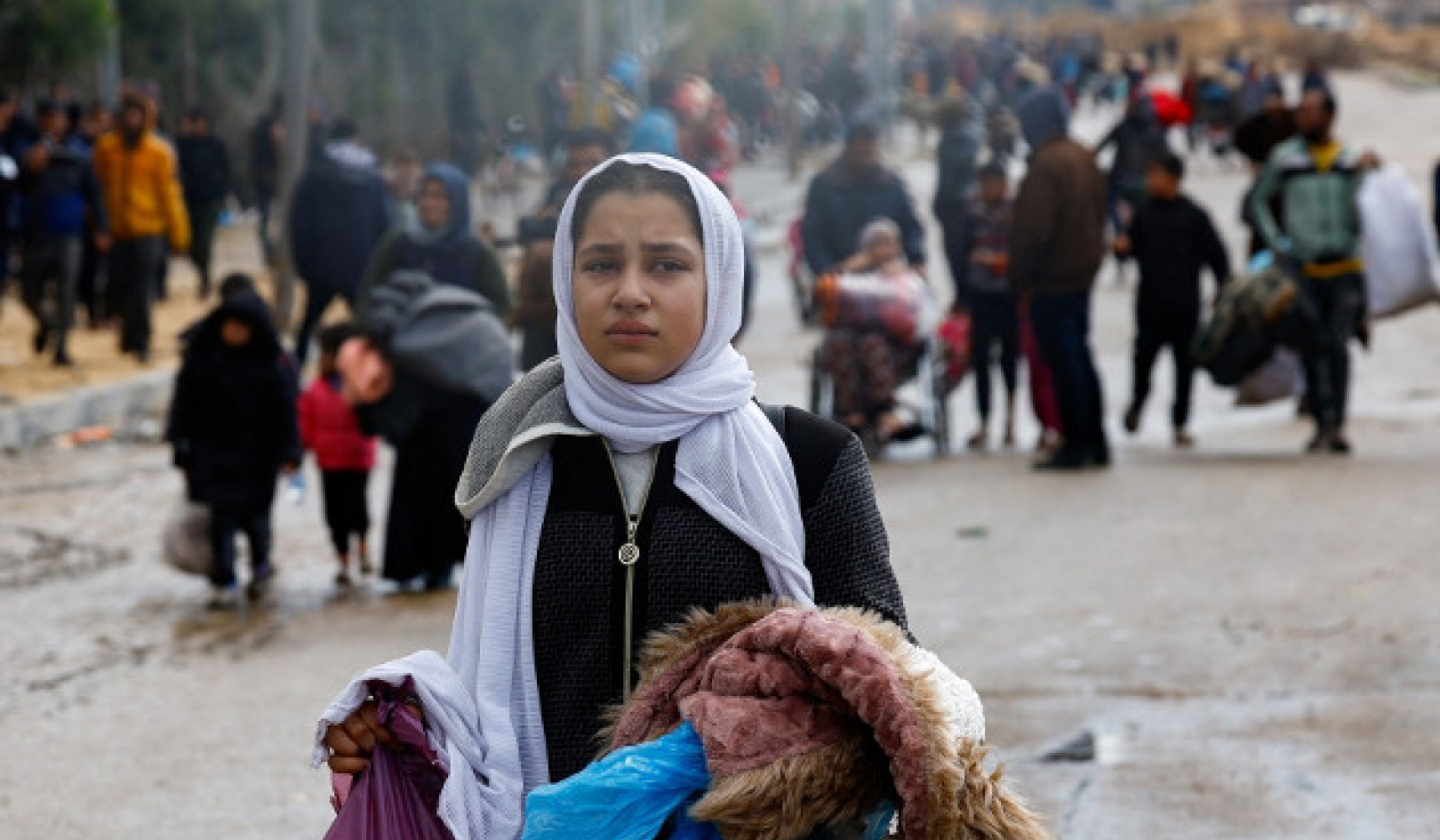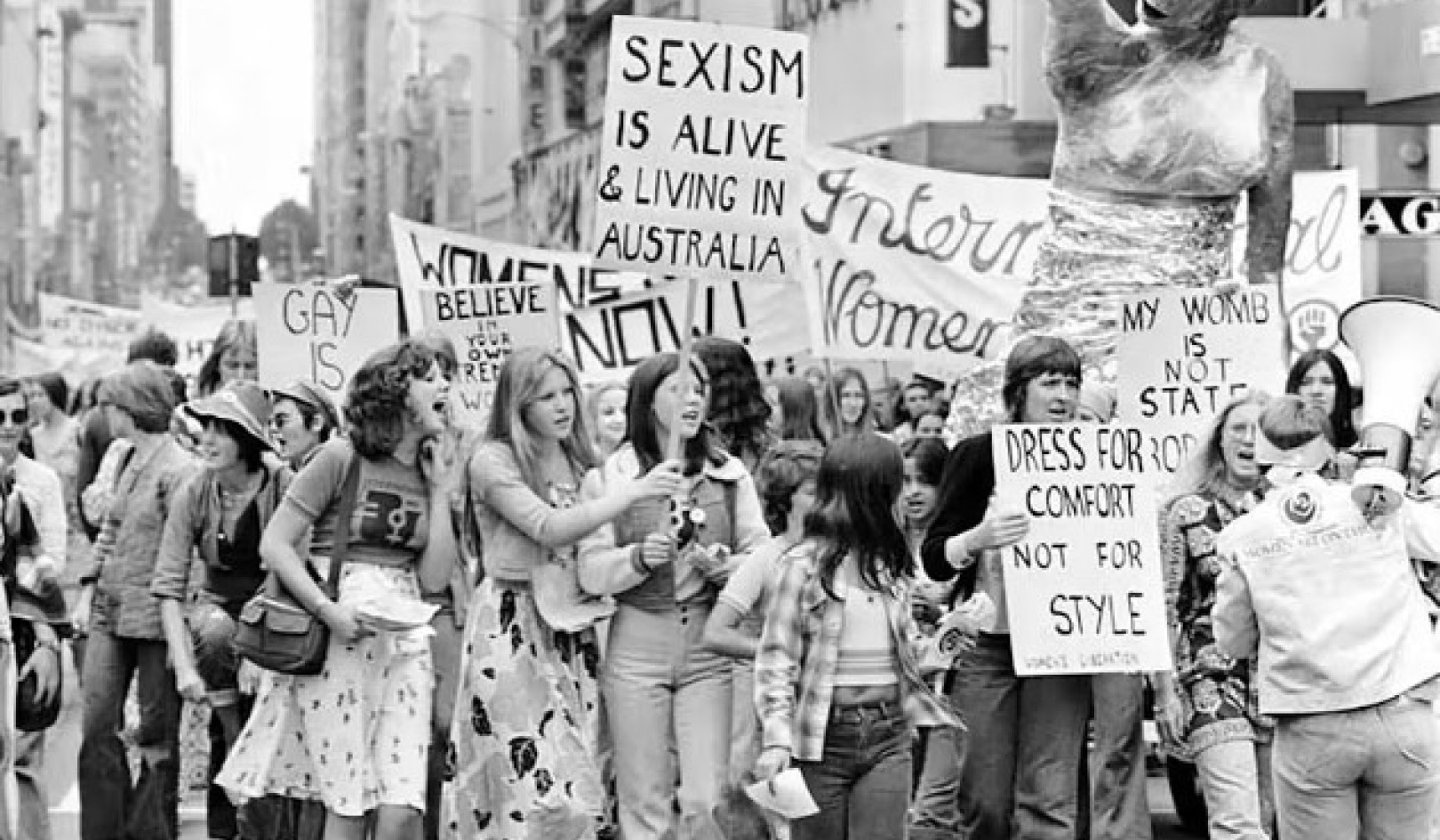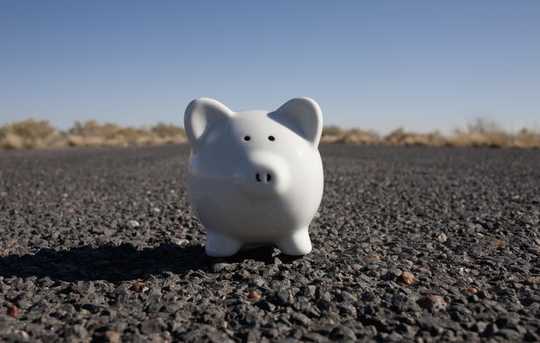 It’s lonely out there. Winslow Productions via Getty Images
It’s lonely out there. Winslow Productions via Getty Images
The Big Idea
A banking desert is an area without traditional financial institutions and services. They are common in rural areas because large financial institutions are reluctant to operate in less populated areas that are less profitable. Two colleagues and I found that people who grow up in a bank desert on Native American reservations are at a financial disadvantage throughout their adult life. They are less likely to use traditional credit, such as a credit card or a mortgage. When they do, their payments are significantly higher than average, and they’re more likely to fall behind on payments. These effects persist even for people who move to areas with more banking services.
Why it matters
Young adults who were exposed to the financial system at an early age – for example, when a parent opens up their first savings account – are more likely to become financially literate. This is important because financial illiteracy leads to costly mistakes when navigating the intricacies of financial products. Our results highlight the importance of learning from interactions with local banks and developing a credit history at a young age.
How we do our work
In this particular study, we looked at bank deserts in a setting with particularly scarce access to financial services: Native American reservations. A 2001 study of financial access on reservations found that only half of reservations had a bank within 30 miles. Though a recent analysis shows that access to banking on reservations has improved, someone living in a reservation must travel an average of more than 12 miles to reach their nearest bank branch.
For our study, we used Equifax credit bureau data to observe credit outcomes for people who grew up in Native American bank deserts and compared them with those who were raised on reservations with a branch on site. While merely living on a reservation has been linked to poverty and negative consequences for individuals later in life, we found that at least for credit outcomes it was the lack of banking that really mattered.
We also surveyed nearly 1,000 Native Americans to understand how bank deserts affected their attitudes toward finance. We learned that Native Americans who grew up in bank deserts had worse financial literacy and were less trusting of bankers. These differences led young people to develop worse credit histories, a disadvantage that lasts a lifetime.
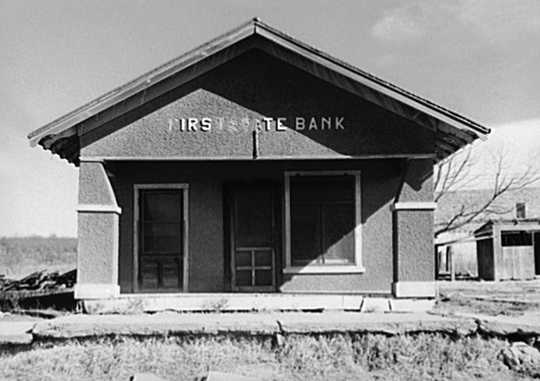 A deserted bank building in the oil ghost town, Slick, Okla., in 1940. Russell Lee/Underwood Archives/Getty Images
A deserted bank building in the oil ghost town, Slick, Okla., in 1940. Russell Lee/Underwood Archives/Getty Images
What still isn’t known
An important question that still hasn’t been answered is whether technology can help solve the problem. Online banking has expanded significantly, with numerous apps that make it easier to manage one’s finances without stepping foot in a branch. In theory, this could extend financial access to people in bank deserts. However, we found that bank deserts have long lasting effects despite the recent proliferation of online banking, suggesting that online banking does not fully replace having a local bank nearby.
What else is happening
Our research on Native American bank deserts is related to ongoing policy research that seeks to understand how banking can be sustained on reservations. Though we focus on how people are affected by lack of access to finance, there are also important gaps for small businesses that need credit to grow their businesses.
What’s next
I am generally interested in understanding how households access and use credit. My latest research studies how receiving large cash windfalls from the discovery of shale natural gas affects households’ access and use of credit. Payments from shale natural gas discoveries can frequently exceed US$100,000. We hope to understand how this money affects debt repayment and self-employment outcomes for households.
About The Author
Tony Cookson, Associate Professor of Finance, University of Colorado Boulder
This article is republished from The Conversation under a Creative Commons license. Read the original article.
Remember Your Future
on the 3rd of November
Learn about the issues and what's at stake in the November 3, 2020 US Presidential election.
Too soon? Don't bet on it. Forces are conniving to stop you from having a say in your future.
This is the big one and this election may be for ALL the marbles. Turn away at your peril.
Only You Can Prevent 'Future' Theft
Follow InnerSelf.com's
"Remember Your Future" coverage
Books on Inequality from Amazon's Best Sellers list
"Caste: The Origins of Our Discontents"
by Isabel Wilkerson
In this book, Isabel Wilkerson examines the history of caste systems in societies around the world, including in the United States. The book explores the impact of caste on individuals and society, and offers a framework for understanding and addressing inequality.
Click for more info or to order
"The Color of Law: A Forgotten History of How Our Government Segregated America"
by Richard Rothstein
In this book, Richard Rothstein explores the history of government policies that created and reinforced racial segregation in the United States. The book examines the impact of these policies on individuals and communities, and offers a call to action for addressing ongoing inequality.
Click for more info or to order
"The Sum of Us: What Racism Costs Everyone and How We Can Prosper Together"
by Heather McGhee
In this book, Heather McGhee explores the economic and social costs of racism, and offers a vision for a more equitable and prosperous society. The book includes stories of individuals and communities who have challenged inequality, as well as practical solutions for creating a more inclusive society.
Click for more info or to order
"The Deficit Myth: Modern Monetary Theory and the Birth of the People's Economy"
by Stephanie Kelton
In this book, Stephanie Kelton challenges conventional ideas about government spending and the national deficit, and offers a new framework for understanding economic policy. The book includes practical solutions for addressing inequality and creating a more equitable economy.
Click for more info or to order
"The New Jim Crow: Mass Incarceration in the Age of Colorblindness"
by Michelle Alexander
In this book, Michelle Alexander explores the ways in which the criminal justice system perpetuates racial inequality and discrimination, particularly against Black Americans. The book includes a historical analysis of the system and its impact, as well as a call to action for reform.



